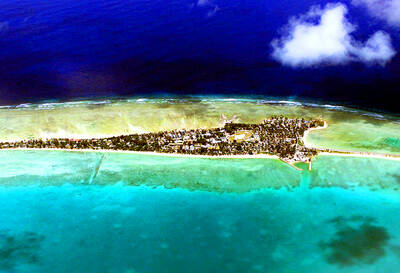The inspector general of the Interior Department has found that agency officials often interfered with scientific work to limit protections for species at risk of becoming extinct, reviving attention to years of disputes over President George W. Bush’s administration’s science policies.
In a report delivered to Congress on Monday, the inspector general, Earl Devaney, found serious flaws in the process that led to 15 decisions related to policies on endangered species.
The report suggested that at least some of those decisions might need to be revisited under the administration of president-elect Barack Obama.
Among the more significant decisions was one reducing the number of streams that would be designated as critical habitat for the endangered bull trout and protected from commercial use. That rule is already the subject of a lawsuit by environmentalists.
“The results of this investigation paint a picture of something akin to a secret society residing within the Interior Department that was colluding to undermine the protection of endangered wildlife and covering for one another’s misdeeds,” said the chairman of the House Natural Resources Committee, Representative Nick Rahall.
Most of the problematic decisions involved Julie MacDonald, a former deputy assistant secretary for fish and wildlife and parks, who oversaw endangered-species issues and frequently clashed with scientists. The report does not accuse MacDonald of doing anything illegal, but criticizes her conduct severely.
“MacDonald’s zeal to advance her agenda has caused considerable harm to the integrity” of the Endangered Species Act programs “and to the morale and the reputation” of the Fish and Wildlife Service, “as well as potential harm to individual species,” Devaney said in a cover letter to his report.
Efforts to reach MacDonald by telephone on Monday were unsuccessful. She resigned in May of last year after an earlier inspector general report found that she had run roughshod over agency scientists and violated federal rules by giving internal documents to industry lobbyists.
After MacDonald’s resignation, the Fish and Wildlife Service began a review of eight agency decisions that regional officials said MacDonald might have manipulated to reach a result that was not supported by scientific evidence.
But Senator Ron Wyden, chairman of the Senate Subcommittee on Public Lands and Forests, asked the inspector general to cast a wider net in reviewing MacDonald’s work and that of several close colleagues.
Of the 20 matters examined in the new report, the report found that MacDonald was involved in 13, and that in 15 “the integrity of the process was potentially jeopardized” by her or by several colleagues at the department.
“This report makes it crystal clear how one person’s contempt for the public trust can infect an entire agency,” Wyden said. “Ms MacDonald’s narrow focus on her own agenda not only endangered the Endangered Species Act, it opened the door for countless land-use decisions and developments that would have never otherwise been considered.”
The report also recommended new rules to limit the discretion wildlife service officials have on endangered species.

DISASTER: The Bangladesh Meteorological Department recorded a magnitude 5.7 and tremors reached as far as Kolkata, India, more than 300km away from the epicenter A powerful earthquake struck Bangladesh yesterday outside the crowded capital, Dhaka, killing at least five people and injuring about a hundred, the government said. The magnitude 5.5 quake struck at 10:38am near Narsingdi, Bangladesh, about 33km from Dhaka, the US Geological Survey (USGS) said. The earthquake sparked fear and chaos with many in the Muslim-majority nation of 170 million people at home on their day off. AFP reporters in Dhaka said they saw people weeping in the streets while others appeared shocked. Bangladesh Interim Leader Muhammad Yunus expressed his “deep shock and sorrow over the news of casualties in various districts.” At least five people,

ON THE LAM: The Brazilian Supreme Court said that the former president tried to burn his ankle monitor off as part of an attempt to orchestrate his escape from Brazil Former Brazilian president Jair Bolsonaro — under house arrest while he appeals a conviction for a foiled coup attempt — was taken into custody on Saturday after the Brazilian Supreme Court deemed him a high flight risk. The court said the far-right firebrand — who was sentenced to 27 years in prison over a scheme to stop Brazilian President Luiz Inacio Lula da Silva from taking office after the 2022 elections — had attempted to disable his ankle monitor to flee. Supreme Court judge Alexandre de Moraes said Bolsonaro’s detention was a preventive measure as final appeals play out. In a video made

It is one of the world’s most famous unsolved codes whose answer could sell for a fortune — but two US friends say they have already found the secret hidden by Kryptos. The S-shaped copper sculpture has baffled cryptography enthusiasts since its 1990 installation on the grounds of the CIA headquarters in Virginia, with three of its four messages deciphered so far. Yet K4, the final passage, has kept codebreakers scratching their heads. Sculptor Jim Sanborn, 80, has been so overwhelmed by guesses that he started charging US$50 for each response. Sanborn in August announced he would auction the 97-character solution to K4

SHOW OF FORCE: The US has held nine multilateral drills near Guam in the past four months, which Australia said was important to deter coercion in the region Five Chinese research vessels, including ships used for space and missile tracking and underwater mapping, were active in the northwest Pacific last month, as the US stepped up military exercises, data compiled by a Guam-based group shows. Rapid militarization in the northern Pacific gets insufficient attention, the Pacific Center for Island Security said, adding that it makes island populations a potential target in any great-power conflict. “If you look at the number of US and bilateral and multilateral exercises, there is a lot of activity,” Leland Bettis, the director of the group that seeks to flag regional security risks, said in an